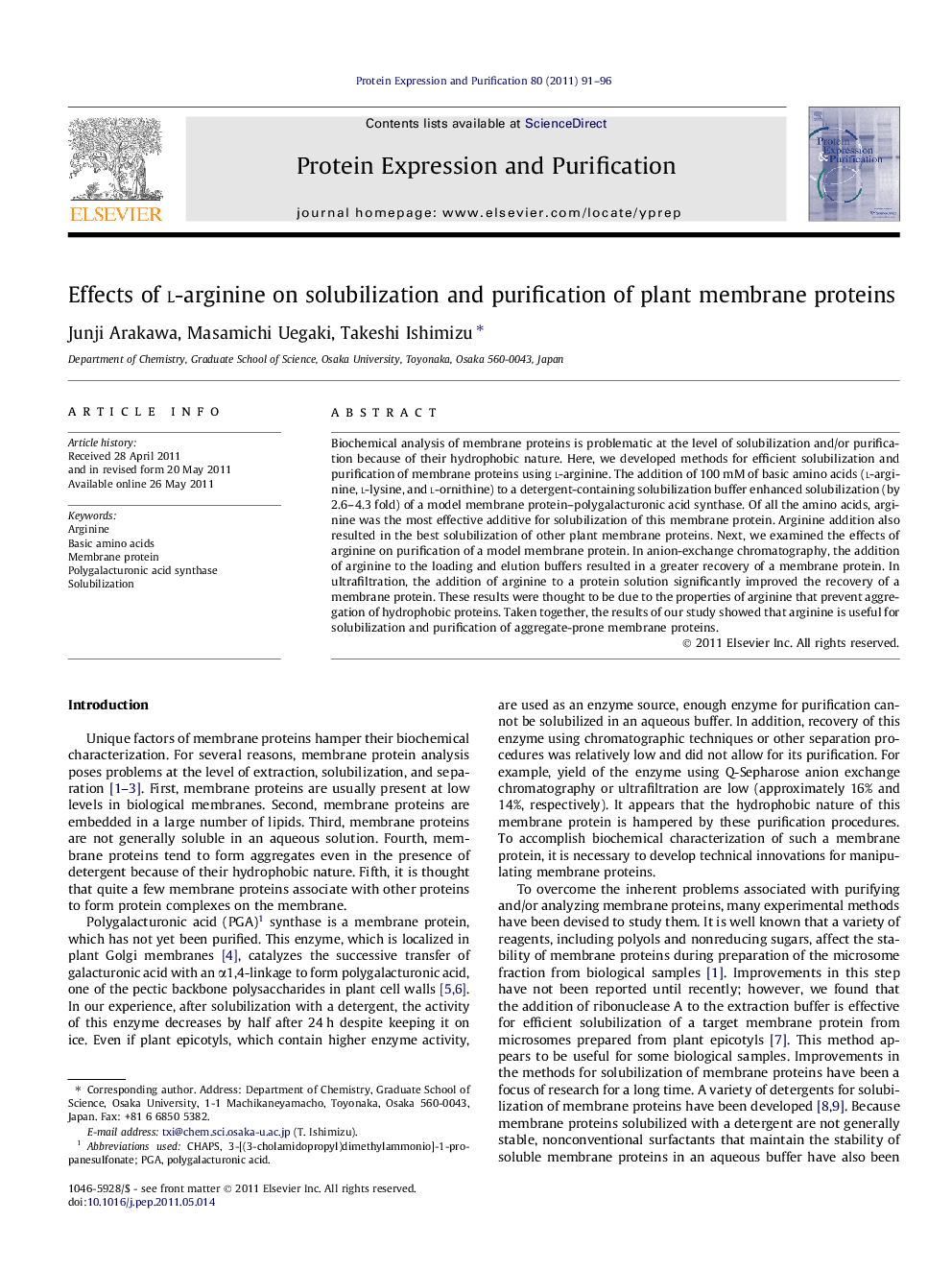| Article ID | Journal | Published Year | Pages | File Type |
|---|---|---|---|---|
| 2020761 | Protein Expression and Purification | 2011 | 6 Pages |
Biochemical analysis of membrane proteins is problematic at the level of solubilization and/or purification because of their hydrophobic nature. Here, we developed methods for efficient solubilization and purification of membrane proteins using l-arginine. The addition of 100 mM of basic amino acids (l-arginine, l-lysine, and l-ornithine) to a detergent-containing solubilization buffer enhanced solubilization (by 2.6–4.3 fold) of a model membrane protein–polygalacturonic acid synthase. Of all the amino acids, arginine was the most effective additive for solubilization of this membrane protein. Arginine addition also resulted in the best solubilization of other plant membrane proteins. Next, we examined the effects of arginine on purification of a model membrane protein. In anion-exchange chromatography, the addition of arginine to the loading and elution buffers resulted in a greater recovery of a membrane protein. In ultrafiltration, the addition of arginine to a protein solution significantly improved the recovery of a membrane protein. These results were thought to be due to the properties of arginine that prevent aggregation of hydrophobic proteins. Taken together, the results of our study showed that arginine is useful for solubilization and purification of aggregate-prone membrane proteins.
